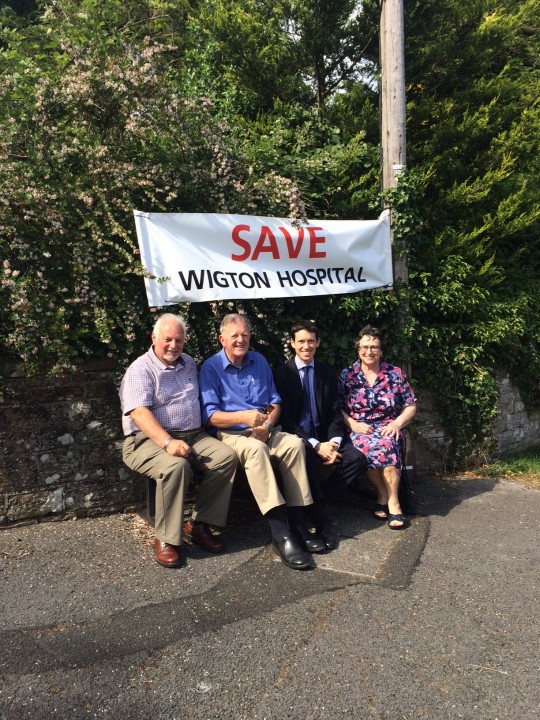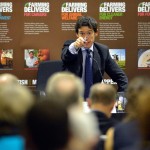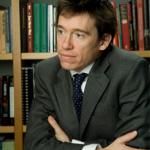Merry Christmas 2016 from Penrith and The Border
Very Happy Christmas and Happy New Year.
When I wrote this letter last year, we were in the middle of the worst floods ever recorded in the United Kingdom. Three thousand homes were under water in Kendal and Carlisle, and hundreds in each of Appleby, Keswick and Cockermouth – and, while attention was on the larger areas, dozens of outlying villages were suffering terribly. I saw directly, hour by hour over the whole Christmas period, how much we owed to mountain and bay rescue teams, police, fire service, military, councils, churches, volunteers, the Environment Agency – and particularly to the communities themselves. Many of us were unable to be with our families at all over Christmas, and I hope that, like me, you are able to make up for it in some way this year.
I spent the next period, as Floods Minister, supporting teams who were repairing the damage – getting Appleby, Eamont and Pooley bridges reopened, for example, or clearing thousands of tonnes of rocks, rebuilding the bed, and reopening the A591 in time for the tourist season – and on helping individual households with affordable flood insurance, and grants for resilient repairs. By the spring we were able to focus on the longer-term thanks, in many ways, to the Environment Agency and the communities and farmers in the Cumbria Floods Partnership, who I sat with in dozens of meetings, not only challenging government, local agencies, the County Council and the Highways Department, but also patiently explaining their own solutions. (I am delighted that we were able to secure up to £72 million extra to invest in flood defences across Cumbria, and additional money for natural flood protection.)
Floods aside we remain of course in the privileged and also difficult position of living in not only the most beautiful, but also the most sparsely-populated constituency in England. Which is why some of this year has also been spent pressing to extend broadband and mobile coverage deeper into rural areas, and on protecting our precious community hospitals (with huge thanks to the people from Alston to Wigton who have made the counter-proposals that explained in such detail how the community hospitals can help us more in the future). Cumbria’s tourism – to which our local economy is so connected – has bounced back, with record visitor numbers and room occupancy. Our schools remain some of the best in rural Britain. And I was delighted to be able to secure central government funding to dual the A66, and – after a six year campaign – to witness a lift finally working at Penrith Station.
Again and again citizens showed how they could identify what was wrong, and demonstrate they had the knowledge and experience to improve our government and society. But it was often challenging to bring community voices and ideas into the systems, bureaucracy and legal processes of government. In the Cumbria Floods Partnership, for example, hundreds of people had to meet repeatedly to balance the views of scientists and residents, and address a whole system. They had to argue about holding water back on the hills (through tree-planting and bogs); decide how to work with water companies (using their reservoirs) and with farmers in their fields; and choose where to slow the water down, through weirs, and where to speed it up through dredging.
But decisions about a river system are simple compared to some of the other decisions we need to make together in the future, such as how to protect what we love about our area, through different models of economic growth over the next thirty years; or how we translate the clear vote in favour of Brexit into the details of a trade negotiation with Europe; or – and this will be surprisingly relevant even in Cumbria – how we work with a Trump administration. These things can seem very distant from a Lake District fellside, but all my recent walks (some of which I have written about in my new book, The Marches), showed me again and again how deeply we are enmeshed in a much larger world – how the smallest farm can be buffeted not just by new environmental fashions for rewilding in London, but also by decisions on dairy made in New Zealand, or tariffs in the Middle East. Day by day, I saw the difficulty of balancing the different interests of a small island with those well beyond our seas. Day by day, I was reminded of the problem of listening intelligently and fairly to things which are difficult and deeply inconvenient to hear.
At Christmas in particular I am reminded that, for all our challenges at home, there are billions whose lives are far worse. It is one thing to know that hundreds of millions of people continue to live in extreme poverty – it is another really to think through what that means: to remember what happens on a dollar a day if you are sick in Bangladesh, or to have to choose in the Chad basin whether to give food to your grandparents or your children. Personally, having visited Syria, Iraq, Libya and Yemen when they were at peace only five years ago, and to know that today they are tormented by armed militia, pulverised by barrel bombs and, in some cases, dying of preventable cholera or simply starving…. But I will leave it there.
I hope in the year ahead, and the years that follow, we can continue to work together to combine the very different and testing virtues which sustain us – the patience to abide with our democracies (citizens and politicians alike), the rigour to refute nonsense, the faith to persevere, and the humility to admit what we cannot know, and cannot do alone.
Wishing you a very Happy Christmas and New Year,
Rory
























